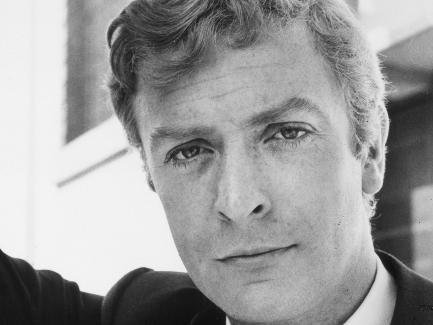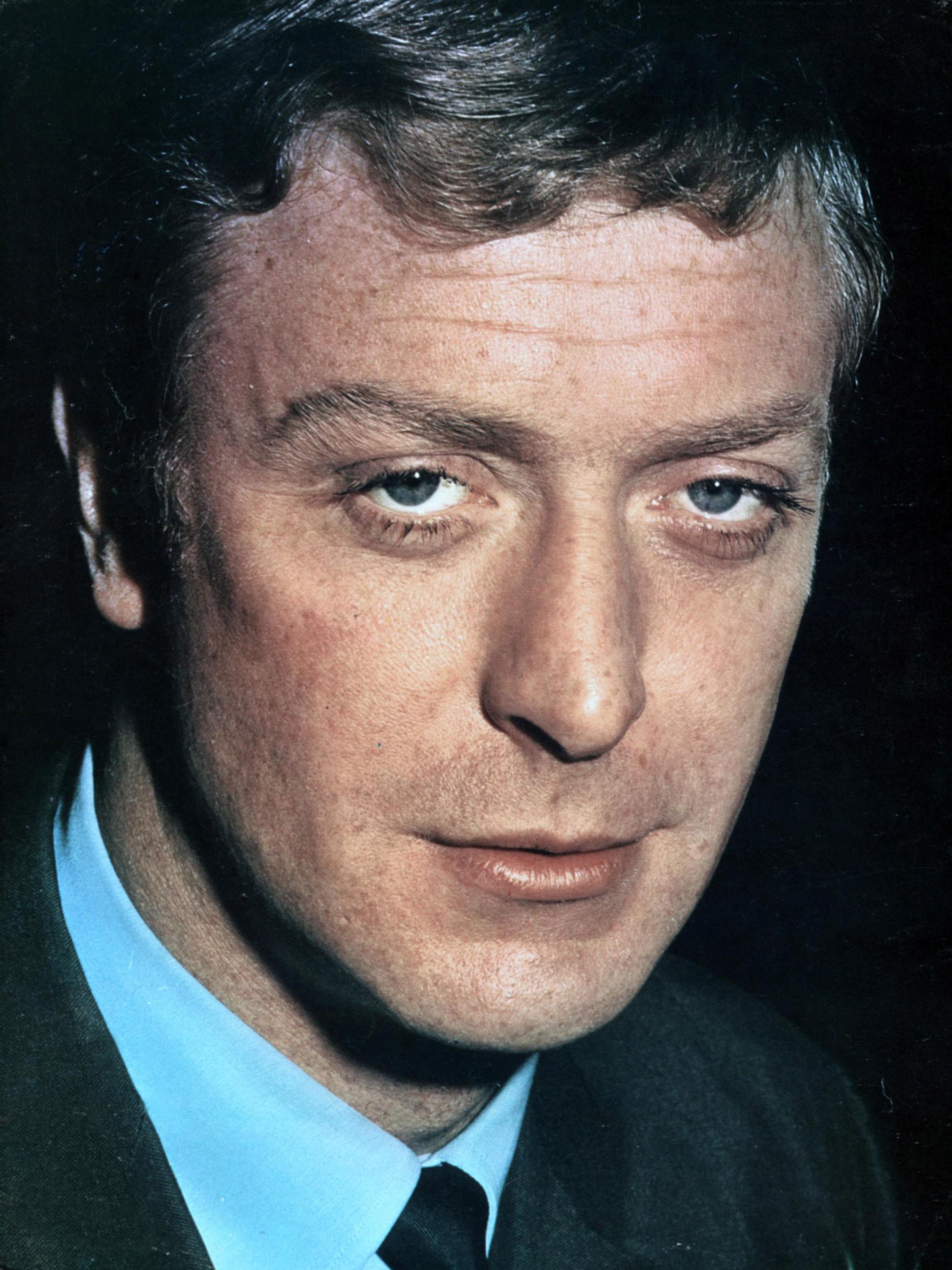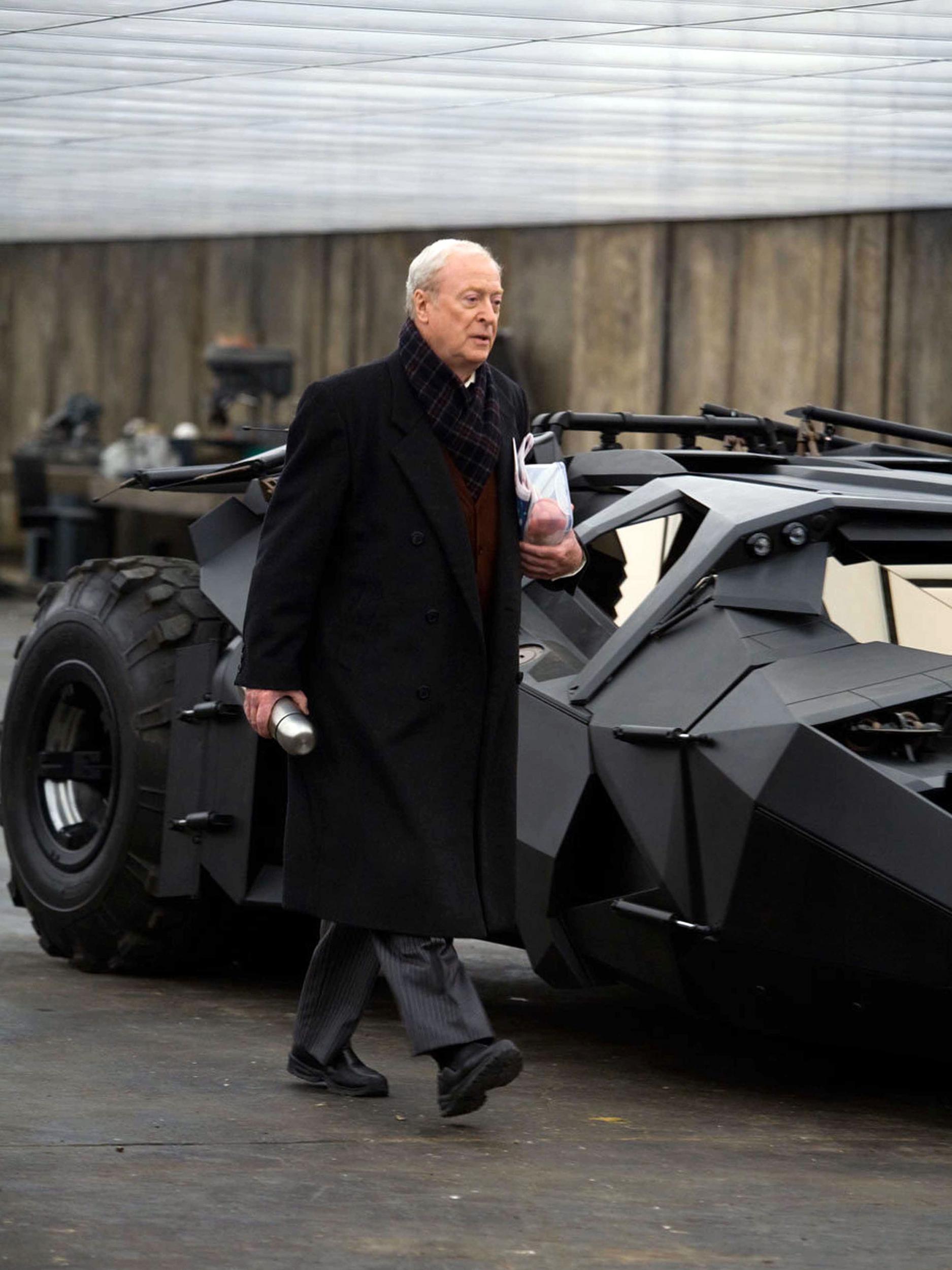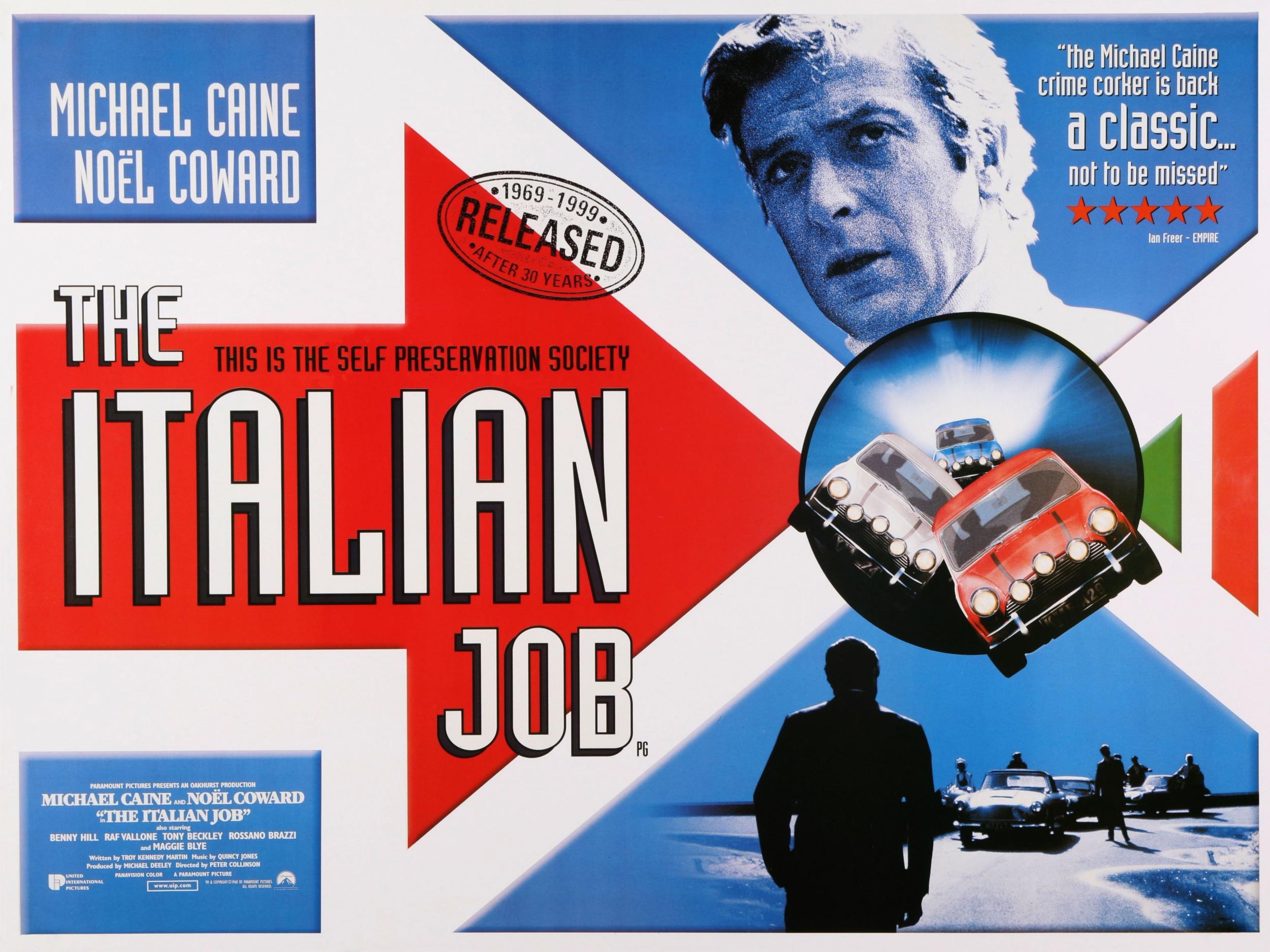Michael Caine interview: 'Every single person I knew became rich'
In Caine’s new documentary, 'My Generation', which screens at the Venice Film Festival this week, he revisits the 1960s when he became Britain's biggest movie star

Your support helps us to tell the story
From reproductive rights to climate change to Big Tech, The Independent is on the ground when the story is developing. Whether it's investigating the financials of Elon Musk's pro-Trump PAC or producing our latest documentary, 'The A Word', which shines a light on the American women fighting for reproductive rights, we know how important it is to parse out the facts from the messaging.
At such a critical moment in US history, we need reporters on the ground. Your donation allows us to keep sending journalists to speak to both sides of the story.
The Independent is trusted by Americans across the entire political spectrum. And unlike many other quality news outlets, we choose not to lock Americans out of our reporting and analysis with paywalls. We believe quality journalism should be available to everyone, paid for by those who can afford it.
Your support makes all the difference.He was born Maurice Joseph Micklewhite and grew up in south London. His mother was a char lady and his father was a Billingsgate fishmarket porter. During the 1960s, he became Britain’s biggest film star. Now, 50 years on, Michael Caine is revisiting the decade that made his fortune in a new film, My Generation (screening this week at the Venice Festival). The documentary, which Caine co-produced and narrates, offers an insider’s view of a transformational era in British society, when the class system at last began to shift and colour seeped into a previously grey world.
The films shows the Swinging Sixties through Caine’s eyes – and through the eyes of some illustrious contemporaries he has interviewed: Twiggy, Roger Daltrey, Paul McCartney, Marianne Faithful and David Bailey among them. Impresario Simon Fuller initiated the project which is directed by David Batty and scripted by Ian La Frenais and Dick Clement. The filmmakers have sourced huge amounts of archive.
“It was a case of waiting until they were available. They’re extraordinarily busy and important people,” Caine says of his interviewees. Arranging to speak to them all apparently took two and a half years but you don’t imagine that many of them will have kept Caine waiting for too long.
If you want to find the real roots of the swinging Sixties, Caine, now 84, suggests that the British education system may be the place to start. “I won the 11-plus scholarship,” he remembers. “One of the most amazing things is that in all the interviews I did for this film, every young male rock and roll singer that I talked to, I deliberately asked where they went to school. Every single one of them went to grammar school.” They got “posh educations” for nothing.

Even if they were determined to have a good time, Caine and his contemporaries had all been conscientious students and they retained a strong work ethic. “Every single person I knew became rich,” says Caine.
In the documentary, Marianne Faithful pinpoints the election of the Labour Government in 1946 as being what “set the 60s up.” There was a “change of diet, a change of healthcare and good education for everyone.” Nonetheless, the picture that Caine draws of life in pre-60s Britain is drab in the extreme. He was born in the Depression era and grew up during the Second World War. “We waited every day to see if we were going to get a telegram saying our dad was dead,” he tells me. “The war was over. Then we were sent to Malaya and Korea to kill people. Then we came back and it was miserable as sin in the 50s Fifties with smog and rationing and everything. Then, we got to the Sixties and said we’re going to have a good time.”
At first, having “a good time” was an uphill struggle. There was no pop music on the BBC. (He and his friends had to listen to Radio Luxembourg or the American Forces’ network.) It was the Cold War and there was the threat of nuclear annihilation wiping them all out in minutes. All this, though, just concentrated the minds of Caine’s generation. They were determined to enjoy themselves while they could. Nothing was going to stop them, neither the disapproval of their elders nor the prospect of nuclear Armageddon.
Caine’s acting career had begun when he appeared on stage in a school pantomime. His flies were down, he got a laugh and he was “hooked.” At the time, though, theatre and cinema didn’t offer much opportunity for a working-class boy from South London. He talks with disdain of the films the British were making. They all featured upper-class types whose lives he couldn’t even begin to relate to.”From the way they talked, I thought all of the actors were dukes and duchesses,” he says in the documentary.
One film that Caine and his friends utterly ridiculed was love story Brief Encounter (1946), about an illicit love affair between a middle-aged home counties housewife (Celia Johnson) and a doctor (Trevor Howard) she meets by chance on a railway platform. I put it to him that Brief Encounter is now acknowledged as one of the all-time classics of British cinema and that there is something extraordinarily moving about the plight of the thwarted lovers.

Watch Apple TV+ free for 7 days
New subscribers only. £8.99/mo. after free trial. Plan auto-renews until cancelled

Watch Apple TV+ free for 7 days
New subscribers only. £8.99/mo. after free trial. Plan auto-renews until cancelled

“It was a very good film about those kind of people,” he says. “But the problem was, that was it – there weren’t films about us. When I was a young actor, I understudied Peter O’Toole in The Long And The Short And The Tall in which he became a star… that was funnily enough the first play I think ever written about English privates. I remember when I was a young man, we always went to see American war films because they were about private soldiers. We never went to see the English films because they were all about officers.”
Caine’s struggles as a young actor are well-chronicled. He talks darkly about doing two days’ work with his friend Oliver Reed in bit-part roles on a Norman Wisdom film, an experience he didn’t enjoy at all. (Wisdom “wasn’t very nice to support-part actors”, he says). Caine had been happy just to make “a few quid” working in rep, eking out a living but at least being paid to act. He had changed his name first to Michael White and then, when he joined Equity, to Michael Caine. (He took the name from The Caine Mutiny, starring his favourite actor Humphrey Bogart.)
By the time he landed his breakthrough screen role as the upper-class officer in Zulu (1964), Caine was already in his thirties. He had originally been up to play a cockney corporal but the film’s American director Cy Endfield saw that he was tall, slim and blond. “He called me back and said, ‘You look more like an officer than a corporal to me. Can you do a posh accent?’ I said I’d been in rep for nine years and I can do any bloody accent.”
Caine stills insists that he would never have been given the part (which kickstarted his movie career) if the film’s director had been English. Old snobbish attitudes were too entrenched. There was a loosening, though. He and his contemporaries were finding their way into worlds previously closed to them. As Paul McCartney puts it in the documentary, “suddenly people realised the working class wasn’t as thick as it looked and it had talent.”
In the Sixties everyone flocked to London. There was a flourishing not just in pop music and movies but across all the arts. The film showcases several photographers who recorded swinging London, David Bailey among them. Bailey tells Caine that he got into photography because he learned how to process pictures on his mother’s Kodak Brownie and liked to take pictures of “birds”. This prompts a chuckle. (Bailey meant the winged variety, not women in mini-skirts, even if the famous saying about him was “David Bailey makes love daily.”) One of the refreshing aspects of the documentary, though, is the absence of sexism. Mary Quant, Twiggy, Jean Shrimpton and others were as much at the heart of the Sixties as Caine or Bailey.

Caine mentions his old friend David Baron, an out-of-work actor who decided to write plays. “He said to me, ‘David Baron isn’t my real name. When I start to write plays, I am going to use my real name.’ I said to him, ‘What’s your real name.’” Back came the reply: “Harold Pinter.” Pinter wrote the play and Caine appeared in it. “Things like that happened. You were almost forced not to fail…That’s how the Sixties changed the country.”
In American accounts of hippy culture and the summer of love, the hangover sets in with Altamont, Charles Manson and the Sharon Tate murders. Caine suggests that what brought the swinging Sixties in Britain to an end was drugs. No, he didn’t indulge himself. Richard Harris once gave him some marijuana which made him laugh so hard he almost “had a hernia”.
“It was midnight. I was trying to get a cab hime from Grosvenor Square to Notting Hill Gate and I was standing on the corner, laughing maniacally. No cab would stop for me. I had to walk all the way home to Notting Hill.” After that, he never smoked marijuana again. “It also affects the memory and as an actor, I’ve to remember lines.”
The documentary includes an account of the notorious drugs bust of Keith Richards’ house. Marianne Faithful gives her own first-hand and very colourful account of the infamous party on which the police swooped. (There is no mention of Mars bars.)
Caine may have been in a hurry to escape his background but he continually returns to his old south London haunting grounds. In the documentary, we see archive footage of him as a successful young movie star meeting a kindly old former neighbour somewhere near the Walworth Road. She greets him with delight and tell him he looks just like his dad. In his autobiography, Caine tells a strange story about revisiting the Elephant and Castle and spotting another small man unnoticed in the crowds, also on a nostalgic return journey to the London of his childhood. It was Charlie Chaplin. The legendary comedian couldn’t hide his sadness at the way “developers had torn” the area apart. Caine spoke to him and then saw him shuffle off. “I could almost see the funny shoes and the walking stick as he walked away, passing unnoticed through the crowds of people who were children of his past.”

Caine tells me that he revisited the Elephant and Castle two years later... and saw Charlie Chaplin there again, on another of his anonymous visits. “But I didn’t put it in the book because I didn’t think anyone would believe it. He used to go round there a lot and so did I.”
Now, the Elephant and Castle has changed beyond recognition. He recently went back there with a US TV crew who wanted to film him in the place where he grew up. They went to the site of the old Elephant and Castle pub. “I looked out of the window and there was a skyscraper. There was no pub there. Everything is all gone.”
In his 80s, Caine remains as busy as ever. He has just finished starring in a film about the Hatton Garden robbers. He plays one of the thieves. “I tried to meet my character but the police wouldn’t let me.”
Even though he has just revisited the Sixties in My Generation, Caine doesn’t much like to dwell on the past. “I don’t feel nostalgia. I never look back. I feel extraordinarily lucky, not about my talent or anything, but about the timing,” he says of the decade which launched him and countless others too. The Sixties helped make Caine… but, of course, Caine helped make the Sixties too.
‘My Generation’ premieres at the Venice Festival this week and will also show at the BFI London Film Festival from 4-15 October
Join our commenting forum
Join thought-provoking conversations, follow other Independent readers and see their replies
Comments